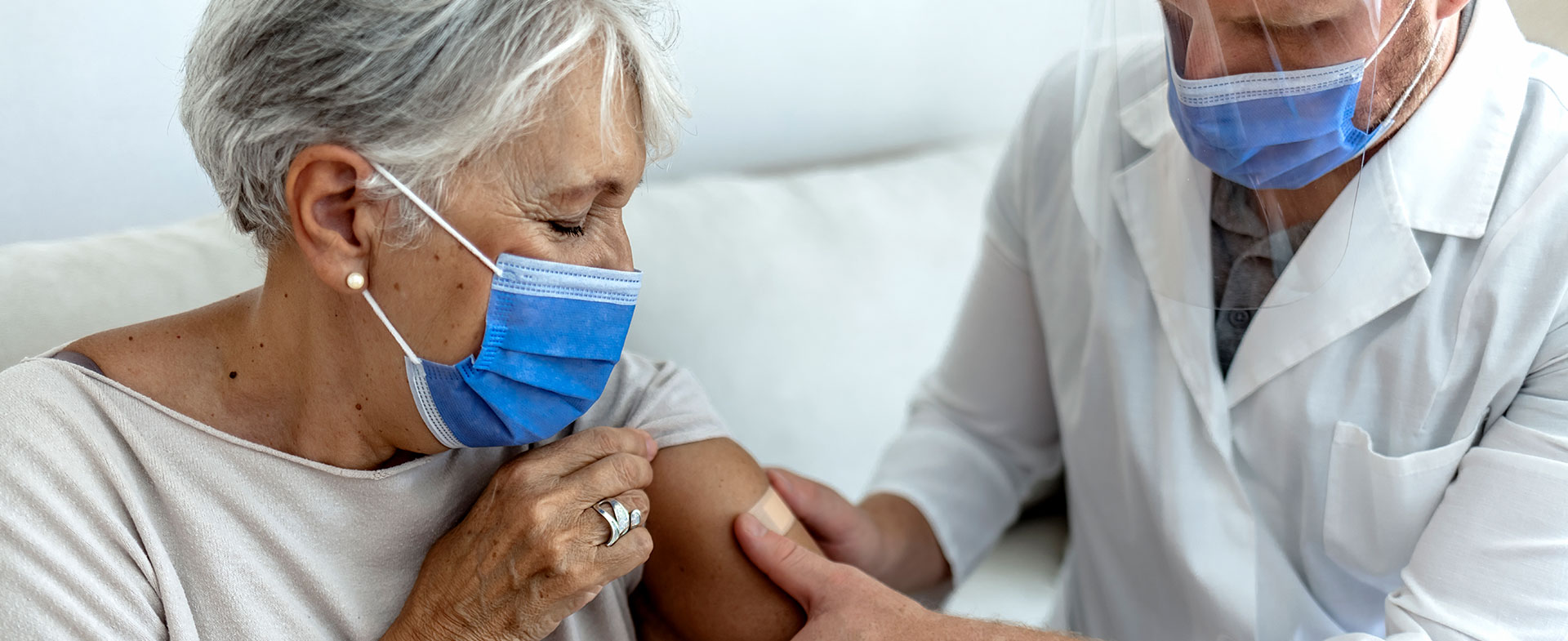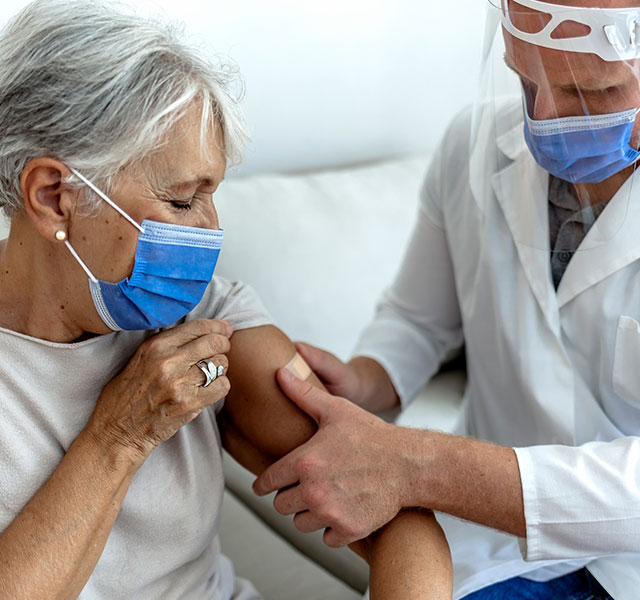While the Centers for Disease Control and Prevention (CDC) recommends COVID-19 booster shots for everyone ages 12+, the CDC recommends both third doses and booster shots for those who are immunocompromised. Getting a third dose will further strengthen your protection against COVID-19, which is especially important for those with weakened immune systems.
“Studies suggest that fully vaccinated immunocompromised people make up 40 to 44% of hospitalized COVID-19 cases,” says Dennis Cunningham, M.D., medical director of infection control and prevention at Henry Ford Health. “If you are immunocompromised, you cannot fight infections and diseases as well as other people. And it limits your body’s ability to produce protective antibodies after being vaccinated. A third vaccine dose will give you additional antibody protection from the virus.”
Here, Dr. Cunningham answers questions about third doses and boosters shots in immunocompromised people.
Q: Who is eligible to receive a third shot?
A: Anyone ages 5+ who is immunocompromised and received Pfizer or Moderna for their first two shots is eligible to receive a third shot.
Q: When should I receive my third shot?
A: You should receive your third shot 28 days after receiving your second shot of Moderna or Pfizer. You should receive the same vaccine for your third shot as you received for your first two shots. (Pfizer is currently the only COVID-19 vaccine that's authorized for those younger than 18.)
Q: Is the third shot different from the original two shots?
A: No. The third shot contains the same ingredients and the same amount of vaccine as the first and second shots.
Q: Is it safe to get a third shot?
A: The safety profile is the same as for the first and second vaccine doses. Studies with immunocompromised people did not show severe adverse effects after a third dose. The effectiveness of additional COVID-19 vaccine doses in immunocompromised people is very good. After receiving the third shot, many people developed protective antibodies.
The Food and Drug Administration (FDA) has updated the Emergency Use Authorization (EUA) for the Moderna and Pfizer vaccines to authorize a third vaccine dose for immunocompromised people.
Q: Will side effects be worse after the third shot?
A: Side effects after a third shot of Moderna or Pfizer are similar to what people experience after receiving the first two shots. Most symptoms are mild to moderate, and the most common side effects are fatigue and injection-site pain.
Q: Will the third shot improve my protection against COVID-19 variants?
A: Yes, the third shot will improve your protection against all strains of the COVID-19 virus, including the Omicron and Delta variants. It will also reduce the chances of getting very sick, if you do contract COVID-19.
Q: After getting my third shot, when should I receive my booster shot?
Q: How do I know if I’m immunocompromised?
A: You are considered immunocompromised if you:
- Have been receiving active cancer treatment for tumors or cancers of the blood.
- Received an organ transplant.
- Received a stem cell transplant.
- Have primary immunodeficiency (such as DiGeorge syndrome, Wiskott-Aldrich syndrome, Bruton’s agammaglobulinemia, or severe combined immunodeficiency).
- Have advanced or untreated HIV infection (CD4 count < 200).
- Are being treated with high-dose corticosteroids or other drugs that may suppress your immune response.
If you are unsure whether you are considered immunocompromised, please contact your doctor.
Subscribe to receive a weekly email of our latest articles, including more on COVID-19 and the vaccines.
Henry Ford offers COVID-19 vaccines and boosters to established patients. Appointments can be scheduled in MyChart. For updates on booster guidelines and availability of vaccines by age group, visit henryford.com/coronavirus/vaccine-faqs.
Dr. Dennis Cunningham is the medical director of infection control and prevention at Henry Ford Health.



